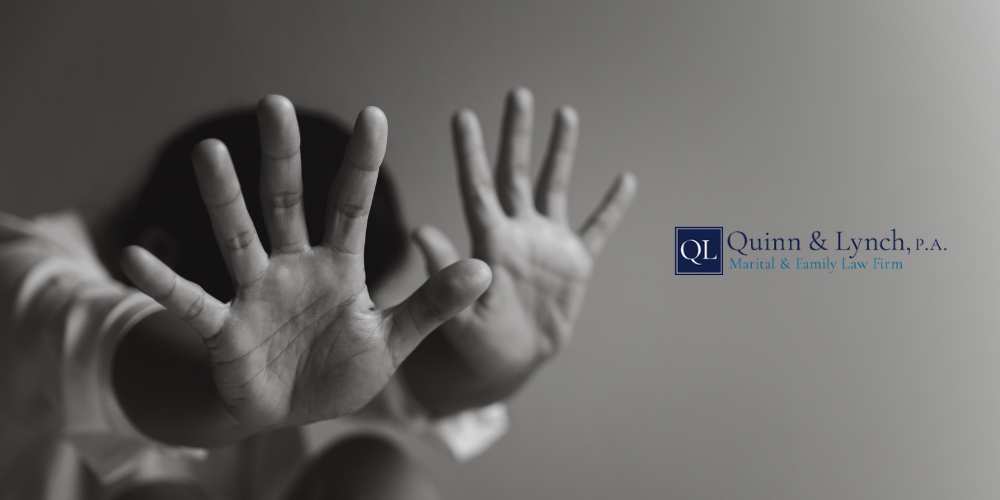Greyson’s Law is a Florida law that works to protect minor children who may be in imminent danger of becoming a victim of domestic violence, child neglect, child abuse, or other forms of parental harm.
Domestic violence is unfortunately common in Florida, and calling law enforcement often fails victims due to a lack of legal protections. This was especially true in the case of Greyson Kessler, a little boy who was a victim of a murder-suicide after his mother desperately tried to protect him.
Because the legal system failed her, Greyson’s mother fought to change the Florida statutes surrounding shared parental responsibility to protect minor children from harmful or potentially harmful parents. Below, we’ll go into the details of Greyson’s Law and the changes to Florida law that have been made in the wake of his death.
If you want to change or establish a shared parental responsibility and time-sharing schedule for a shared minor child, contact the Tampa divorce attorneys at Quinn & Lynch. Our family law attorneys can help you fight for sole custody of your child and ensure you and your child are protected from potential harm.
Call us at 813-223-7739 to schedule a consultation with a Tampa child custody lawyer on our team.
Story of Greyson Kessler
In May of 2021, Greyson Kessler, a 4-year-old boy, was killed by his biological father, John Stacey, in a murder-suicide. The story of Greyson’s life led to a drastic change in Florida law to better serve the best interests of minor children.
In the months leading up to the tragic death, Ali Kessler, Greyson’s mother, had been fighting relentlessly to limit Stacey’s time-sharing rights, as she had reasonable cause to believe that her child was in imminent danger of becoming a victim of child abuse. This reasonable belief was based on her own personal experience. Stacey had engaged in a controlling behavior composed of several acts over a short period of time.
On May 18, Ali Kessler filed a petition for a domestic violence injunction (a restraining order) against Stacey. Her petition was denied due to Florida’s narrow definition of domestic violence. That same day, Stacey picked up Greyson according to his court-ordered time-sharing agreement.
On May 19, Ali Kessler filed an emergency petition with the Broward Family Court outlining her current concerns for potential harm on behalf of her minor child. The reasonable cause to believe her child was in danger stemmed from not hearing from her son and learning that Greyson wasn’t at school that day.
Greyson’s mother requested an emergency pick-up to remove her son, Greyson Kessler, from Stacy’s custody. The emergency petition was denied.
On May 20, Ali Kessler still hadn’t heard from them, and Greyson was still not at school. After calling law enforcement multiple times to request a wellness check on Stacey and her son, Kessler’s worst fears were confirmed. Police would find Stacey and Greyson deceased on Stacey’s couch. They had died on the 19th due to a murder-suicide, just one day after Greyson’s mother tried to have her child’s father physically restrained from her son.
Greyson’s Law Florida

Greyson’s Law was a bill signed into action by the Florida legislature in 2023. It was designed to change Florida’s family court laws, specifically those around parental responsibility and time-sharing. Greyson’s Law allows Florida family courts to consider any threats of domestic violence or sexual assault made against the child or the other parent when deciding time-sharing or parental responsibility.
It also expanded the laws surrounding domestic violence injunctions, allowing a victim of domestic violence or emotionally abusive behavior to be granted a verifiable order against their abuser and requiring protective injunctions to be served within 24 hours of being filed.
Florida Timesharing Law Before Greyson’s Law
Before Greyson’s Law, if two people divorced or were separated and shared a minor child, both parents would likely receive equal time with the child. A parent’s time-sharing rights would be upheld unless one parent was convicted of a first-degree misdemeanor or higher involving domestic violence, was a registered sex offender, or had committed an offense that was grounds for termination of their parental rights.
At the time, the court could still limit a parent’s time-sharing rights if they decided that equal timesharing or parental responsibility would be detrimental to the child. However, this was completely up to the discretion of family courts. Before Greyson’s Law, if the court found evidence of domestic violence against the child, they could limit one parent’s time, but they did not have to take into account any evidence of domestic violence against the other parent.
To lose their timesharing rights, the abusive parent would have to be arrested and convicted of domestic violence in court, where they would be presumed innocent until proven guilty. The other parent would have the burden of proving they were the victim of domestic violence beyond a reasonable doubt. In Kessler’s case, she could not have Stacey arrested and charged with domestic violence because of Florida’s very narrow definition of what constitutes domestic violence.
Florida Domestic Violence Law
Under Florida Statute 741.28(2), domestic violence is defined as any act of assault, battery, stalking, kidnapping, false imprisonment, or other crime resulting in physical injury or death of a family member or household member committed by another family member or household member.
Under this law, someone can only be convicted of domestic violence if their actions result in another person’s injury or death. At the time of Greyson’s death, Florida’s domestic violence law was limited to these forms of physical abuse, meaning Stacey could not be arrested and charged with domestic violence for threatening and harassing Kessler.
Because he had not been arrested for or convicted of domestic violence before the murder, Kessler could not file a successful domestic violence injunction against Stacey to protect herself and her son from harm. Additionally, since there was no direct evidence of domestic violence against Greyson, the court did not have to limit his timesharing rights.
What is the Coercive Control Law in Florida?
Florida’s coercive control law is under the updated requirements for a domestic violence injunction. If someone is being manipulated, berated, and harassed by a family member or household member, they can be granted a restraining order to protect them from their abuser.
Coercive control is a term that defines certain forms of emotional abuse that are used to control a person’s actions. These are actions like isolating someone from their friends and family or instilling fear to have greater control over them and their actions. Thanks to Greyson’s law, Florida has expanded the requirements for a domestic violence injunction to include acts of coercive control.
Florida Injunction Requirements After Greyson’s Law

Greyson’s law has changed the injunction requirements for domestic violence in Florida. Now, someone can be granted a domestic violence injunction if another person that they live with or a person they have had a child with has engaged in a pattern of abusive, threatening, intimidating, or controlling behavior. If these actions cause the victim to believe that they or their child are in imminent danger of being victims of domestic violence, they can seek a restraining order.
In addition, Greyson’s law has also changed the requirements for when restraining orders must be served to the person they’ve been filed against. Before Greyson’s law, these injunctions were to be served “as soon as possible,” but are now required to be served within 24 hours of the injunction filing.
These two changes allow victims of emotional abuse and threats, as well as their children, to be granted legal protection from abusive family members. They also ensure that abusers are served with their injunction papers within 24 hours of them being filed, ensuring victims and their children are legally protected from harm as soon as possible.
Requirements for a Domestic Violence Injunction in Florida
To file a domestic violence injunction in Florida, an individual must have suffered harm from a family member or household member. This includes spouses, former spouses, blood relatives, and other people living together as a family or have lived together as a family in the past. This also includes individuals with a child in common, regardless of whether or not they are living together or have lived together.
A victim can file for a domestic violence injunction against a family or household member if the family member:
- Has a history of threatening, harassing, stalking, and physically abusing the victim
- Has attempted to harm the victim, the victim’s family, or other people close to the victim
- Has threatened to kidnap, hide, or harm the victim’s child
- Has intentionally harmed or killed a family pet
- Has used or has threatened to use weapons like guns or knives against the victim
- Has physically prevented the victim from leaving the home or calling police
- Has a criminal history involving violence or threats
- Has had a previous restraining order filed against them
- Has destroyed personal property like the victim’s phone, clothes, or other personal items
- Has engaged in a pattern of abusive, threatening, intimidating, or controlling behavior
- Has engaged in any other behavior that has led them to believe they are in imminent danger of domestic violence
Requirements for a Sexual Violence, Repeat Violence, and Dating Violence Injunction in Florida
To protect other people from intimate partner violence, Florida law also allows victims of sexual violence, repeat violence, and dating violence to file a restraining order against their abuser, protecting themselves and their child from harm.
These requirements are outlined in F.S. 784.046, and each form of violence has its own provisions for what qualifies for an injunction.
How Greyson’s Law Changed Parental Responsibility and Time Sharing in Florida
Greyson’s law allows the courts to consider threats of violence against a child or parent as relevant factors when deciding whether or not shared parental responsibility would be in the child’s best interest.
Before Greyson’s law, the court only had to consider evidence of physical parental harm, physical harm to a minor child, or threats against a minor child. Now, if a parent has reason to believe that they are in danger or their child is in danger of violence, they can request that the court modify custody rights.
Greyson’s law also allows the court to consider these factors regardless of whether or not there has been any legal action taken against the family member regarding domestic violence or sexual violence.
Before, the abusive parent had to be legally charged with domestic or sexual violence before they could be stripped of their timesharing rights. These changes to Florida statutes protect parents and minor children from abuse before it occurs, helping prevent tragic cases like Greyson’s from ever happening again.
If Your Spouse Has a Criminal History Involving Violence, Call Our Tampa Domestic Violence and Divorce Attorneys Today
Greyson’s law has helped shape legislation surrounding timesharing, helping to protect children and parents from abusive family members. If your spouse has a history of domestic violence, or you fear you or your child are in danger of domestic violence, contact a female divorce attorney in Tampa at Quinn & Lynch, P.A. today. Our Tampa domestic violence lawyers can help you file a restraining order or can request that the court modify your spouse’s timesharing rights.
Call us at 813-223-7739 or fill out our online form to schedule a consultation with a divorce attorney on our team.















